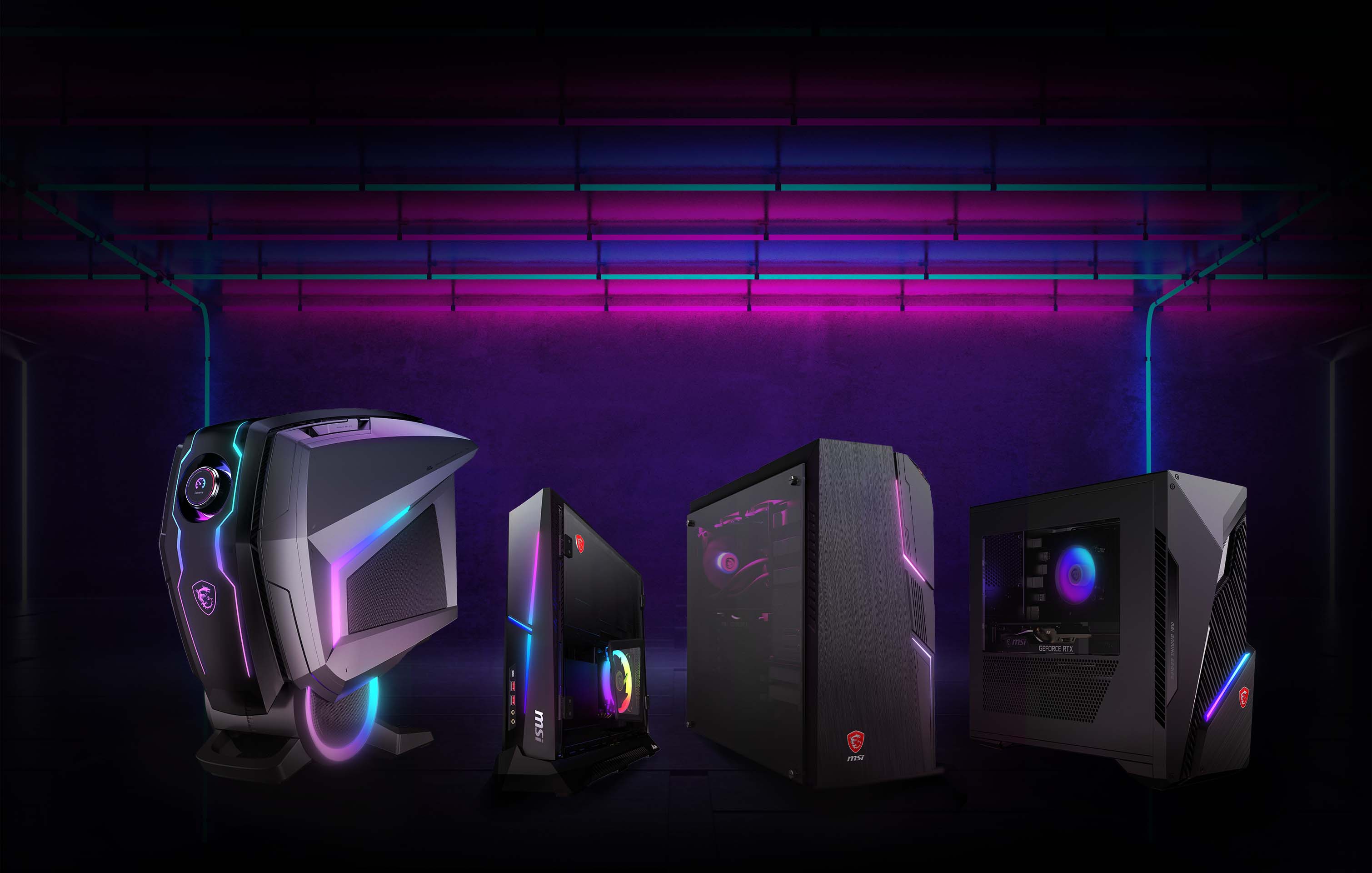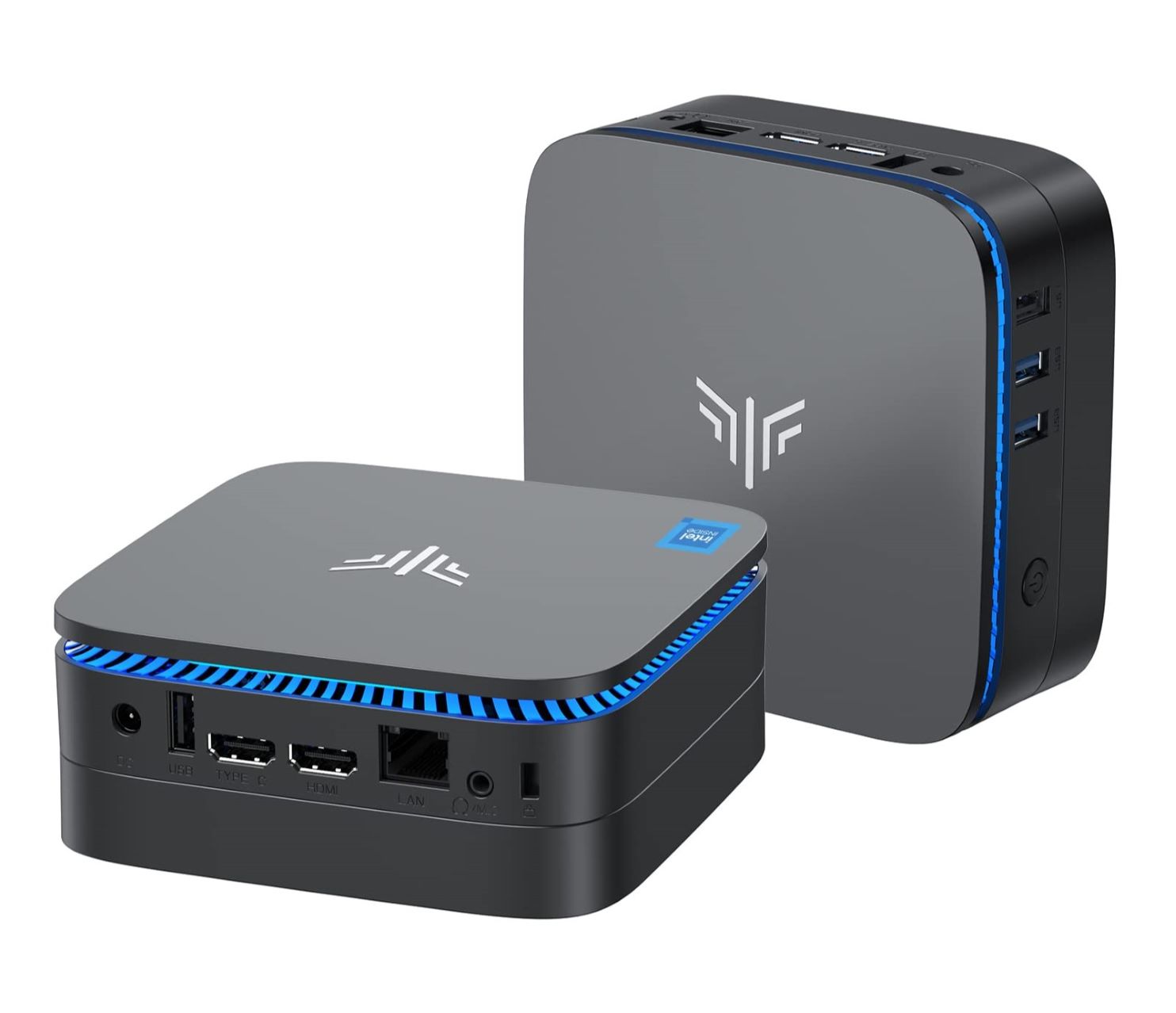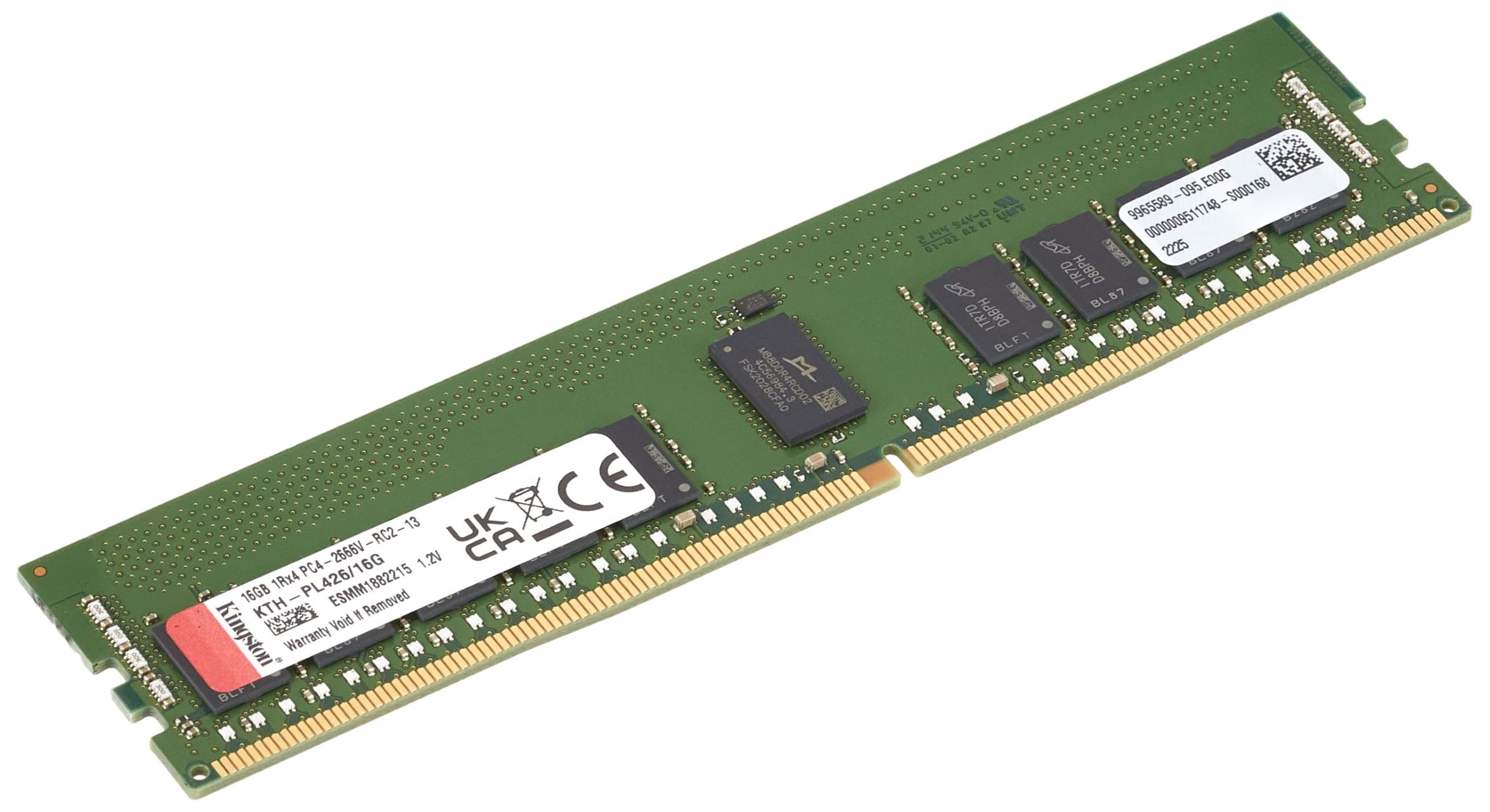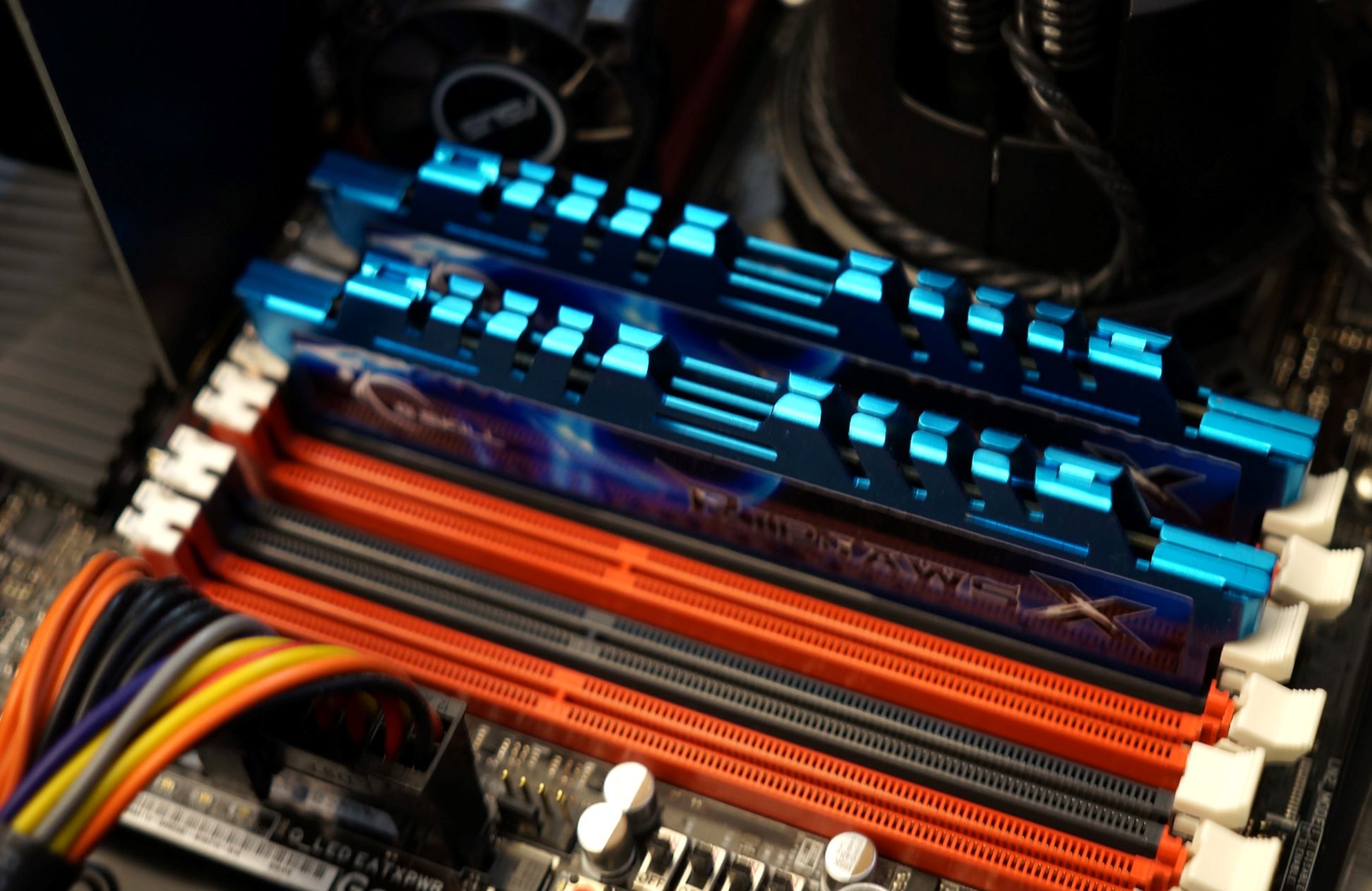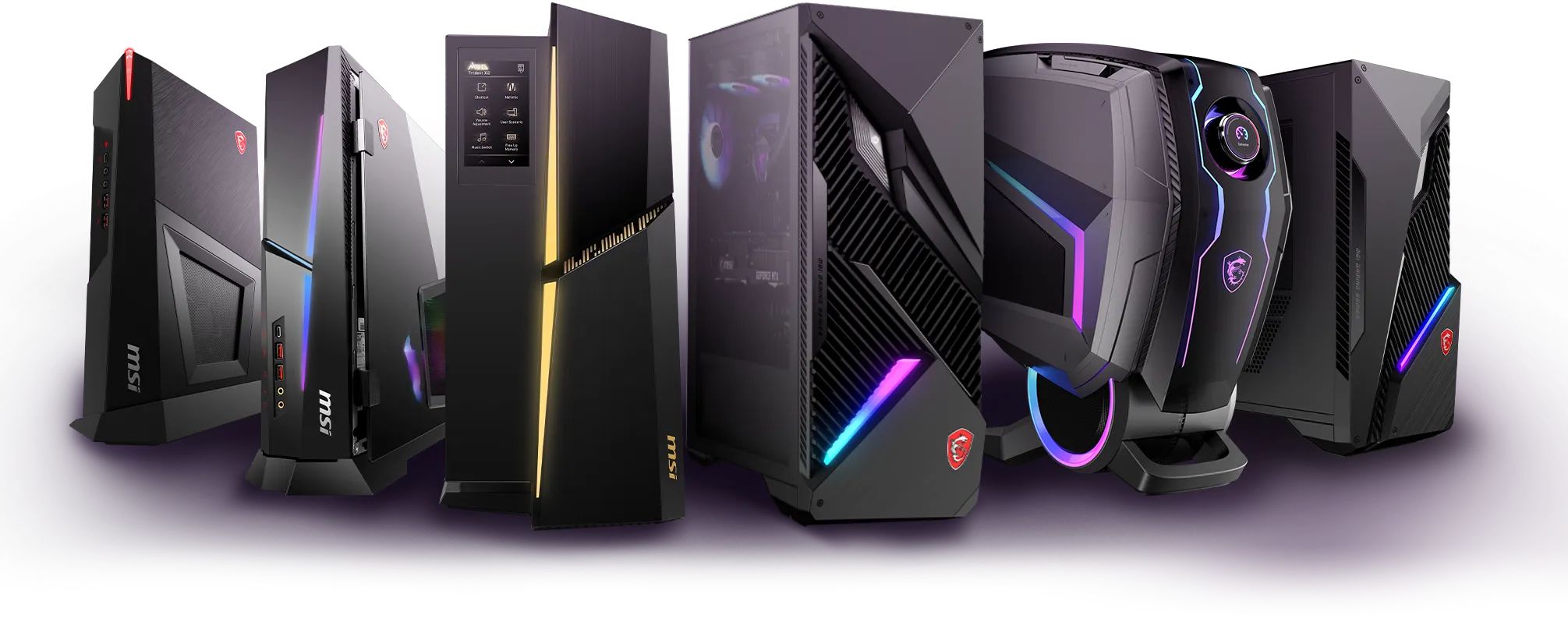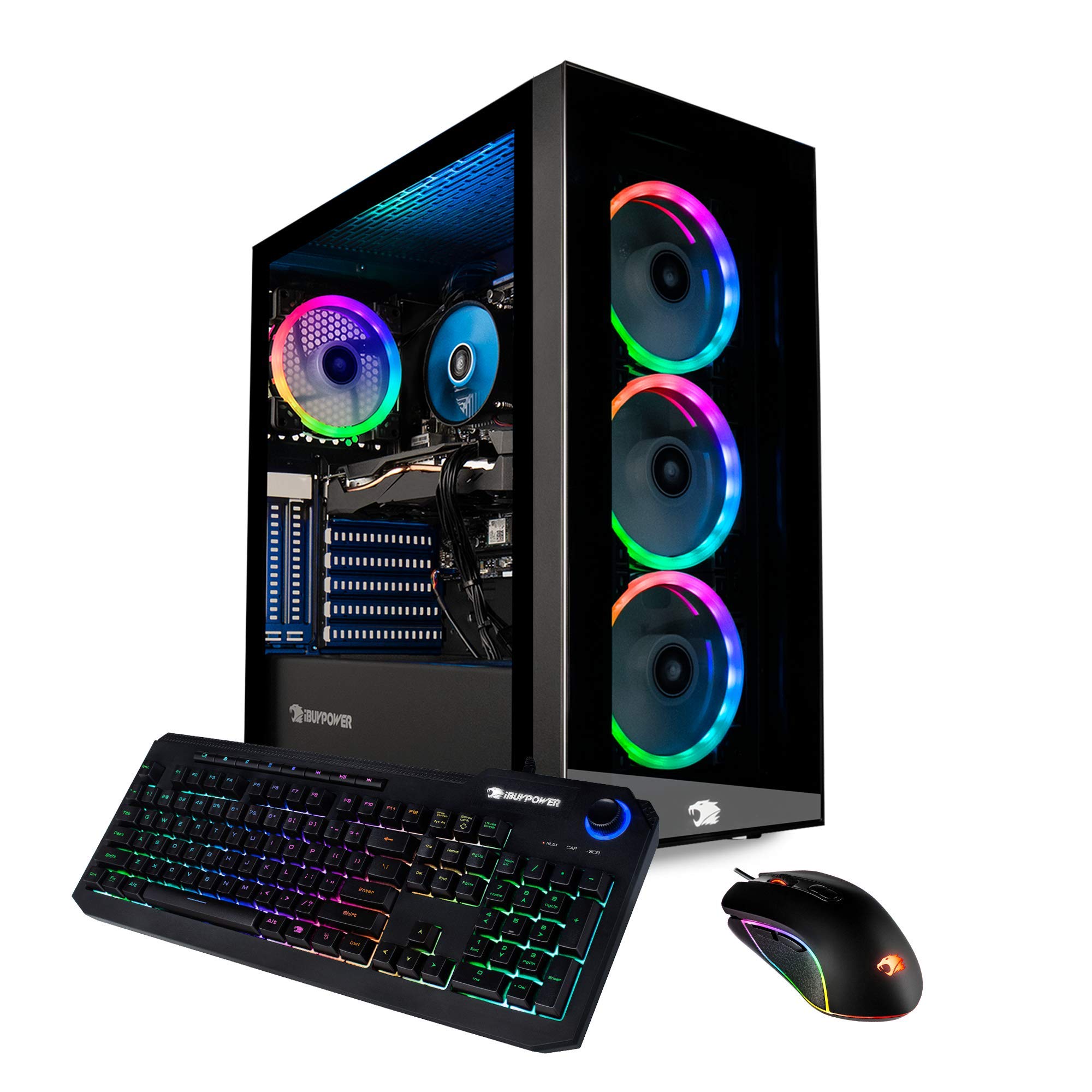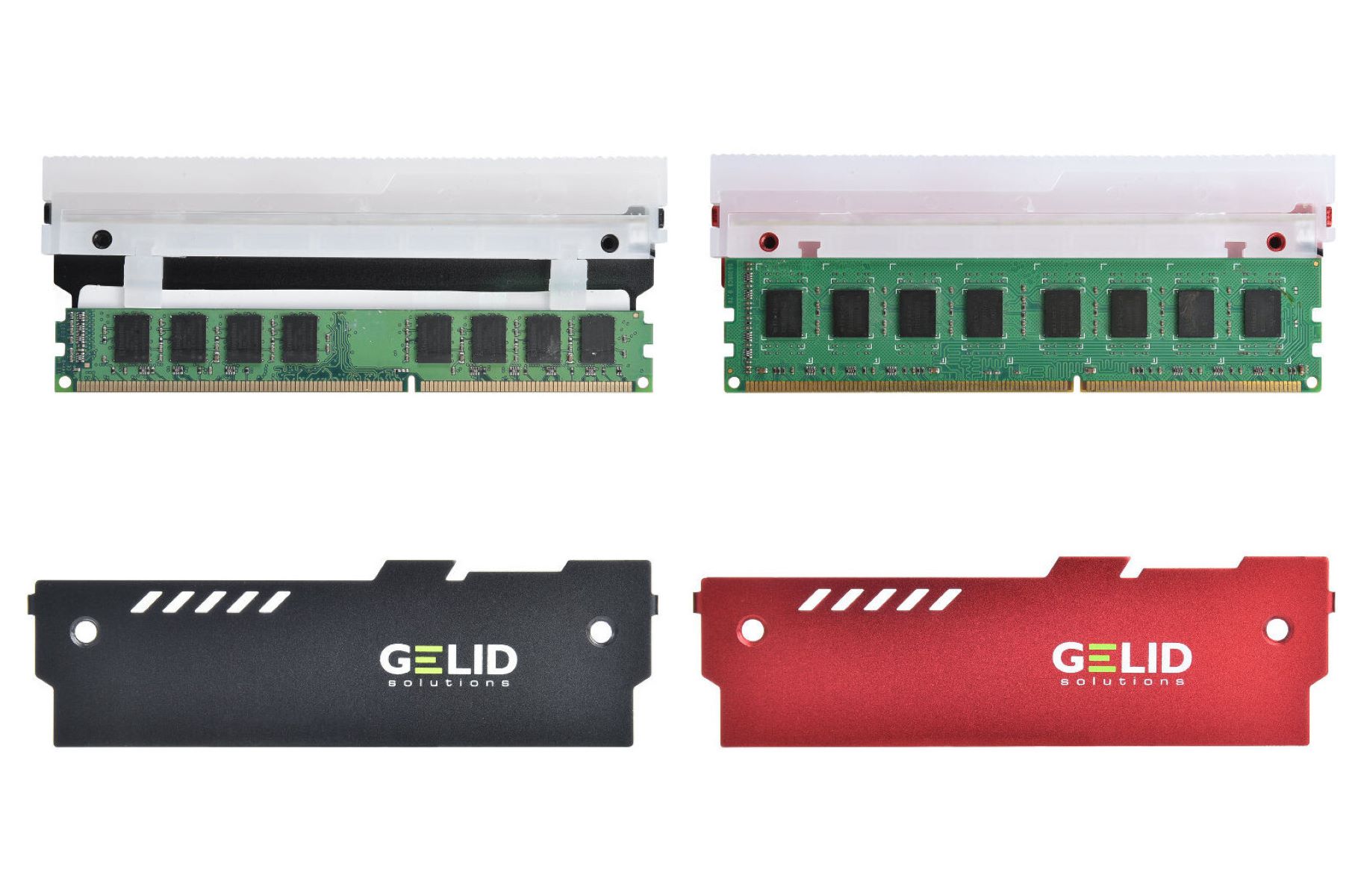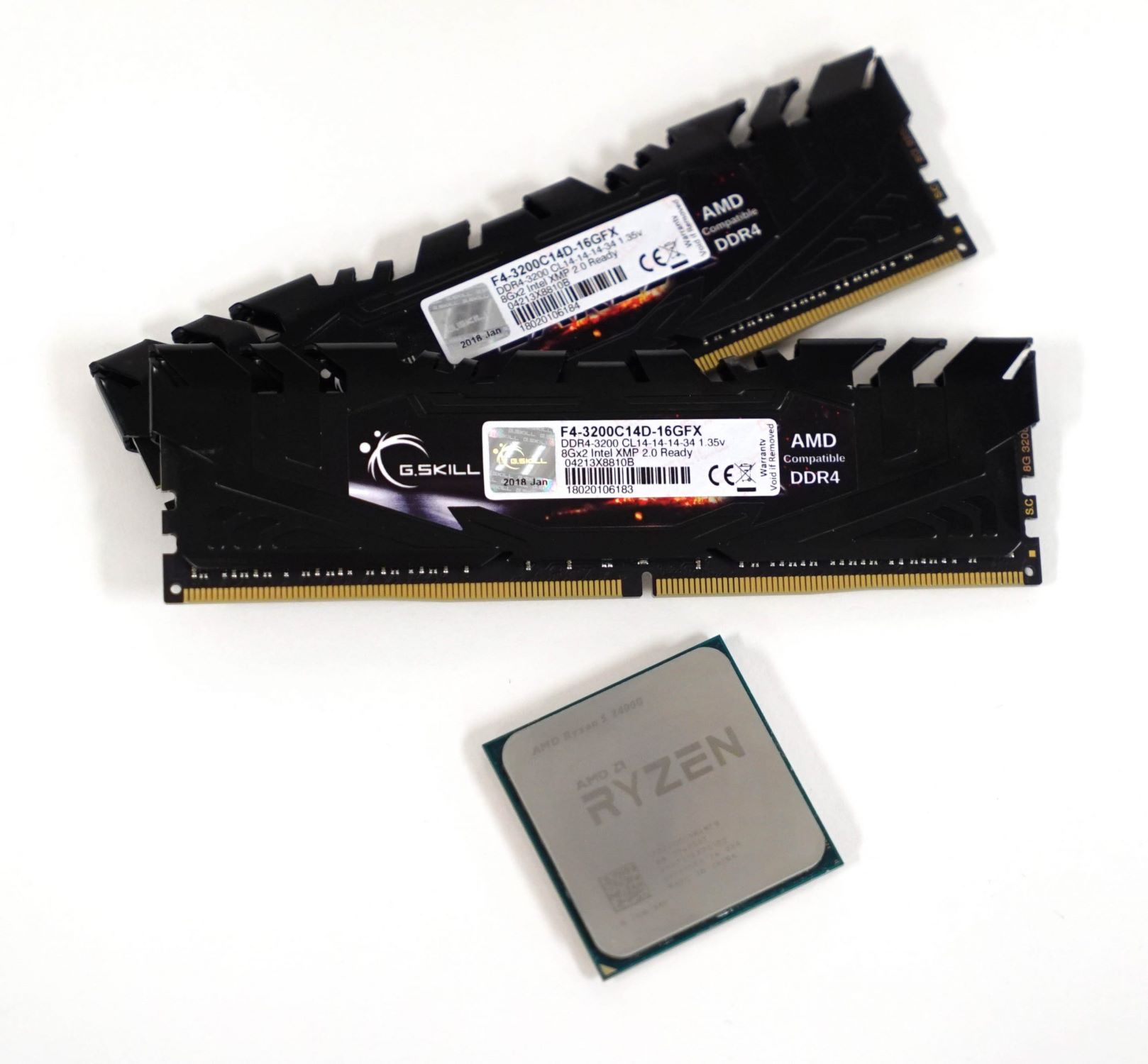Introduction
When it comes to gaming, having a powerful and efficient gaming PC is essential. While factors such as the graphics card and CPU play a significant role in delivering a smooth gaming experience, the importance of RAM cannot be overlooked. RAM, or Random Access Memory, is a crucial component that directly impacts the performance and responsiveness of a gaming PC.
RAM serves as a temporary storage space for data that is actively being used by the computer. Unlike the hard drive, which stores data in a more permanent manner, RAM provides fast access to data, allowing the computer to quickly retrieve and process information. This speed and efficiency are especially important in gaming, where real-time calculations and data transfer are necessary to deliver an immersive gaming experience.
In this article, we will delve into the world of RAM and explore its role in gaming. We will also discuss how having sufficient RAM can enhance load times, reduce lag, improve multitasking capability, and enhance graphics performance. Additionally, we will touch on the concept of overclocking and how it relates to RAM.
So, if you are curious about how RAM impacts your gaming experience, grab your favorite gaming beverage and let’s dive right in!
Definition of RAM
Before we proceed further, let’s start by understanding what RAM actually is. RAM, which stands for Random Access Memory, is a type of computer memory that temporarily stores data that the computer is actively using. Unlike the hard drive, which stores data in a more permanent and non-volatile manner, RAM provides fast and temporary storage for data that is quickly accessible by the computer’s processor.
RAM is like the computer’s short-term memory. When you open a program or game, the necessary data is loaded into RAM, allowing the processor to quickly access it when needed. The more RAM you have, the more data can be stored in this temporary memory, resulting in faster and more efficient performance.
RAM is made up of small storage units called memory cells. Each memory cell can store a certain amount of data, typically measured in bytes. These cells are organized into rows and columns, forming a grid-like structure. When data is stored in RAM, it is assigned a specific address, allowing the computer to easily locate and retrieve the data as needed.
One key feature of RAM is its volatility. This means that the data stored in RAM is lost when the computer is powered off or restarted. However, this volatility also enables RAM to provide fast and temporary storage, as it constantly refreshes and updates the data it holds.
In summary, RAM is a vital component of a computer system, including gaming PCs. It provides fast and temporary storage for data that the computer is actively using, resulting in improved performance and responsiveness. With a better understanding of RAM, we can now explore its role in gaming.
RAM vs. CPU: Understanding the Difference
When it comes to the performance of a gaming PC, two components that often come up in discussions are RAM and the CPU (Central Processing Unit). While both are crucial for a smooth gaming experience, they serve different purposes and play distinct roles in the overall functionality of a computer system.
The CPU is often referred to as the “brain” of the computer. It is responsible for executing instructions, performing calculations, and managing various tasks. It handles complex processes and determines how well the computer can process data. In gaming, the CPU plays a key role in tasks such as AI (Artificial Intelligence), physics simulations, and game logic.
On the other hand, RAM is the short-term memory of the computer. It is a fast-access storage that holds the data needed by the CPU for immediate use. When you launch a game, the game’s data, including textures, models, and other assets, are loaded into RAM. The CPU then accesses this data from RAM to render the game on your screen and provide a smooth gaming experience.
Think of the CPU as the brains, and RAM as the hands of your computer. The CPU does all the processing and calculations, while RAM provides quick access to the data the CPU needs to perform its tasks efficiently. Having a powerful CPU is essential for handling complex calculations, but having sufficient RAM ensures that the CPU can quickly access the necessary data, resulting in smooth and responsive gameplay.
In summary, the CPU and RAM are both integral components of a gaming PC, but they serve different purposes. The CPU handles the processing and calculations, while RAM provides temporary storage for the data the CPU needs for immediate use. Both components work together to deliver a seamless gaming experience, and ensuring a balance between the two is crucial for optimal performance.
The Role of RAM in Gaming
RAM plays a crucial role in gaming by providing a temporary storage space for the data that the computer needs to run games smoothly and efficiently. It directly impacts the performance and responsiveness of a gaming PC in several ways. Let’s explore the key roles RAM plays in gaming.
Faster Load Times with Sufficient RAM: One of the primary benefits of having sufficient RAM is faster load times in games. When you launch a game, the game’s data is loaded into RAM, allowing for quick access and retrieval by the CPU. With more RAM available, the game’s assets and resources can be stored in memory, reducing the need for the computer to continuously fetch data from slower storage devices like hard drives or SSDs. This results in quicker load times and a seamless gaming experience.
Smooth Gameplay and Reduced Lag: Insufficient RAM can lead to laggy and choppy gameplay. As you play a game, the CPU continuously retrieves and processes data from RAM to render the game on your screen. If there isn’t enough RAM, the CPU may struggle to quickly access the required data, resulting in frame drops, stuttering, and overall poor performance. Having an ample amount of RAM ensures that the CPU can access the necessary data in real-time, providing smoother gameplay and minimizing lag.
Improved Multitasking Capability: Gaming often involves running multiple programs simultaneously, such as voice chat applications, streaming software, or web browsers. RAM plays a critical role in multitasking during gaming sessions. Having more RAM allows the computer to allocate memory for each running program, ensuring that they can operate smoothly without impacting the gaming performance. It allows you to switch between programs seamlessly, providing a more efficient and enjoyable gaming experience.
Enhanced Visuals and Graphics Performance: Graphics-intensive games rely heavily on the available RAM for storing textures, models, and other visual assets. Insufficient RAM can cause graphical issues, such as textures not loading properly or lower quality visuals. By having enough RAM, the computer can store and quickly access all the necessary assets, resulting in improved graphics performance and more immersive visuals.
Overclocking and RAM: Overclocking is the process of increasing the clock speed of the CPU or RAM to achieve higher performance. When it comes to RAM, overclocking can lead to faster data transfer rates and improved responsiveness in certain scenarios. However, note that overclocking RAM requires careful consideration and compatibility with other PC components, as it can also lead to instability if not done correctly.
Overall, RAM plays a crucial role in gaming by providing quick access to the necessary data required for smooth gameplay and improved performance. Having sufficient RAM ensures faster load times, reduced lag, enhanced multitasking, and better visuals. So, when building or upgrading a gaming PC, allocating an appropriate amount of RAM is essential for an optimal gaming experience.
Faster Load Times with Sufficient RAM
One of the significant benefits of having sufficient RAM in your gaming PC is faster load times when launching games. When you start a game, it needs to load various assets, including textures, models, sound files, and more. This data is loaded into RAM, providing quick access for the CPU to retrieve and utilize during gameplay.
With sufficient RAM, the game’s assets can be stored in memory, reducing the reliance on slower storage devices like hard drives or solid-state drives (SSDs). Since RAM has much faster access speeds compared to these storage devices, the CPU can retrieve the required data more quickly, resulting in significantly faster load times.
Imagine launching your favorite game and having to wait for several minutes for it to load all the necessary assets. This can be frustrating and impede your gaming experience. With ample RAM, the game’s data can be preloaded into memory, allowing for near-instantaneous access when needed. This means you can jump into your game and start playing without experiencing long load times.
Not only does sufficient RAM speed up the initial load times, but it also helps with subsequent level or area transitions within games. As you progress through a game and move between different environments, new assets need to be loaded into memory. The more RAM you have, the more assets can be stored, reducing the need for the game to fetch data from slower storage devices. This results in smoother and more seamless transitions between game areas, without long pauses or delays.
Furthermore, having sufficient RAM also helps with open-world games that require constant loading and unloading of assets as you explore the game world. With more RAM available, these games can store a larger portion of the map in memory, reducing the need to fetch data from storage devices as frequently. This leads to faster rendering of the game world, minimizing pop-in and allowing for a more immersive and visually appealing experience.
In summary, having sufficient RAM in your gaming PC is essential for faster load times when launching games and transitioning between different areas or levels. It allows the game’s assets to be stored in memory, reducing the reliance on slower storage devices. With ample RAM, you can enjoy near-instantaneous access to game data, enabling you to jump right into your gaming session without frustrating delays or lengthy load times.
Smooth Gameplay and Reduced Lag
One of the key benefits of having sufficient RAM in your gaming PC is the ability to enjoy smooth gameplay with reduced lag. RAM plays a crucial role in providing quick access to the data that the CPU needs to render and process the game in real-time.
During gameplay, the CPU continually retrieves and manipulates data from RAM to calculate physics, handle AI, and render graphics. If there isn’t enough RAM available, the CPU may experience delays in accessing the necessary data, leading to frame drops, stuttering, and overall poor performance. Insufficient RAM can result in laggy gameplay, making it challenging to react quickly and impacting the overall gaming experience.
Having sufficient RAM ensures that the CPU can quickly access the required data without any delays. This allows for smoother gameplay, with consistently high frame rates and responsive controls. With more RAM available, the CPU can store a larger portion of the game’s data in memory, reducing the need for constant data fetching from slower storage devices. As a result, the CPU can render the game’s graphics and execute commands more efficiently, resulting in a seamless and immersive gaming experience.
Reducing lag is also crucial for gamers who participate in online multiplayer games. In multiplayer environments, a stable and consistent connection is vital to ensure a fair and competitive experience. However, lag can disrupt gameplay, causing delayed actions and poor synchronization with other players. While network latency is a significant factor in multiplayer lag, having sufficient RAM helps reduce the contribution of system-related lag. With ample RAM to quickly store and retrieve the necessary multiplayer game data, your overall gaming performance can be improved, providing a more enjoyable and competitive gaming experience.
It is important to note that other factors, such as the graphics card and CPU, also impact gameplay smoothness. However, RAM works in conjunction with these components to provide a well-rounded gaming experience. It ensures that the CPU has swift access to the data required for real-time calculations and rendering, minimizing delays and ensuring smooth, fluid gameplay.
In summary, sufficient RAM is crucial for achieving smooth gameplay and reducing lag in gaming. With more RAM available, the CPU can quickly access and process the required game data, resulting in high frame rates, responsive controls, and an overall immersive gaming experience. Investing in ample RAM ensures that your gaming PC can handle the demands of modern games, allowing you to enjoy gaming without the frustration of laggy and unresponsive gameplay.
Improved Multitasking Capability
Gaming often involves more than just running the game itself. Many gamers like to multitask by running various programs or applications alongside their game. This could include voice chat software, streaming software, web browsers, or even other games. Having sufficient RAM in your gaming PC is crucial for efficient multitasking during gaming sessions.
RAM plays a significant role in multitasking by allowing the computer to allocate memory for each program or application running simultaneously. Each program requires a certain amount of memory to operate smoothly, and insufficient RAM can result in performance issues, such as slowdowns or crashes.
With ample RAM, the computer can allocate the necessary memory to each program, ensuring that they can operate simultaneously without impacting the gaming performance. For example, you can run your voice chat software in the background while gaming, allowing you to communicate with your teammates without any noticeable impact on your gameplay experience.
In addition to running auxiliary software, having enough RAM is also beneficial for multitasking within the game itself. Many games offer features like in-game web browsers, voice chat systems, or the ability to switch between applications without closing the game entirely. Having sufficient RAM allows you to seamlessly switch between these features without the need to reload or experience performance issues.
Furthermore, if you enjoy streaming your gameplay or recording videos while gaming, having ample RAM is essential. Streaming software and video recording tools can be resource-intensive, requiring a significant amount of memory to function smoothly. With sufficient RAM, these programs can operate efficiently alongside your game, allowing you to capture or stream your gameplay without sacrificing performance.
Overall, having sufficient RAM enhances the multitasking capability of your gaming PC. It allows you to run auxiliary software, use in-game features, and seamlessly switch between applications without impacting the gaming performance. Whether it’s communicating with teammates, browsing the internet, or recording gameplay, ample RAM ensures that you can multitask efficiently while enjoying a smooth and uninterrupted gaming experience.
Enhanced Visuals and Graphics Performance
When it comes to gaming, visuals play a crucial role in creating an immersive and captivating experience. Having sufficient RAM in your gaming PC is key to achieving enhanced visuals and graphics performance, allowing you to fully enjoy the visual richness of modern games.
Graphics-intensive games require a large amount of data to be stored and accessed quickly during gameplay. This includes textures, models, lighting effects, and various other visual assets. Without sufficient RAM, the computer may struggle to load and store all the necessary visual data, resulting in lower quality graphics or longer loading times for high-resolution textures and detailed models.
With ample RAM, the game can store a larger portion of visual assets in memory, allowing for quick and seamless access by the CPU or graphics card. This leads to improved graphics performance, with sharper and more detailed textures, smoother animations, and enhanced visual effects.
Sufficient RAM is particularly important for games that utilize high-resolution textures and advanced rendering techniques, such as ray tracing or complex shading algorithms. These technologies require a considerable amount of data to be constantly accessed and processed by the GPU. With more RAM available, the GPU can store and retrieve the necessary data more efficiently, resulting in better rendering quality and overall visual fidelity.
In addition to improved texture and model rendering, ample RAM also contributes to smoother frame rates and reduced stutters. When a game has enough memory to store visual assets, the GPU can access them quickly, resulting in more consistent frame rates and reducing frame drops or stutters caused by data fetching delays.
Moreover, having sufficient RAM allows for better utilization of graphics memory (VRAM). VRAM is a dedicated memory on the graphics card that stores and manages visual data. When the system’s RAM is limited, the graphics card may need to use system memory as a fallback, reducing the available VRAM, which can have a negative impact on graphics performance. Sufficient RAM ensures that the graphics card can access all the necessary visual data from its dedicated VRAM, allowing for optimal graphics performance and higher frame rates.
In summary, having sufficient RAM in your gaming PC is essential for enhanced visuals and graphics performance. With ample memory, the game can store and quickly access the necessary visual assets, resulting in improved texture quality, smoother animations, and enhanced visual effects. Additionally, sufficient RAM ensures better utilization of VRAM and contributes to smoother frame rates, providing a visually stunning and immersive gaming experience.
Overclocking and RAM
For gamers and PC enthusiasts looking to push their hardware to the limit, overclocking is a technique that can squeeze out extra performance from various components, including the CPU and RAM. When it comes to RAM, overclocking can have a direct impact on the speed and responsiveness of your gaming PC.
Overclocking refers to increasing the clock speed of a component beyond its factory-set specifications. In the case of RAM, it involves running the memory modules at a higher frequency than the default or XMP (eXtreme Memory Profile) settings. By doing so, you can potentially achieve faster data transfer rates and improved responsiveness.
Overclocking your RAM can lead to faster data access, as the increased frequency allows for quicker communication between the RAM and the CPU. This can result in improved game loading times, reduced input lag, and smoother overall performance. In certain games or applications that heavily rely on memory bandwidth, the benefits of overclocked RAM can be more pronounced.
However, it is crucial to note that not all systems or RAM modules are capable of successful overclocking. Overclocking carries risks, including potential system instability, data corruption, or even hardware damage if not implemented correctly. It is important to have proper cooling solutions in place, as overclocking can generate additional heat. Additionally, compatibility between the RAM, motherboard, and other system components should be considered to ensure stable operation.
Overclocking RAM often involves accessing the system’s BIOS or UEFI settings to manually adjust the RAM timings, voltage, and frequency. Alternatively, some motherboard manufacturers provide overclocking software that simplifies the process. It is recommended to follow guides specific to your system and conduct thorough research to understand the intricacies of overclocking RAM before attempting it.
While overclocking RAM can provide performance benefits, it may not yield a significant improvement in all gaming scenarios. The impact of overclocking depends on various factors, including the specific game or application being used and the overall hardware configuration of the PC. For some gamers, the difference in performance obtained through overclocking RAM might not be noticeable or may not justify the potential risks involved.
In summary, overclocking RAM can potentially lead to faster data transfer rates and improved responsiveness in certain gaming scenarios. It can provide benefits such as reduced loading times and smoother performance. However, it is important to consider the risks associated with overclocking, including system instability and hardware damage. Proper research, understanding of your system’s capabilities, and cautious implementation are crucial when considering overclocking your RAM.
How Much RAM Do You Need for Gaming?
One common question among gamers is: how much RAM do you need for gaming? The amount of RAM required for optimal gaming performance depends on various factors, including the specific games you play, the resolution you game at, and your multitasking requirements.
In general, for most gaming scenarios, 8GB of RAM is considered the minimum requirement. This amount of RAM allows for smooth gameplay in less demanding games and ensures that the operating system and background processes can run effectively alongside the game.
However, as games become more advanced and resource-intensive, having 16GB of RAM has become the recommended standard. With 16GB, you have ample memory to handle modern games, including those with high-resolution textures and complex rendering techniques. Additionally, this amount of RAM allows for better multitasking, as you can run additional software or applications alongside your game.
For gamers who engage in extensive multitasking, content creation, or streaming, 32GB or even 64GB of RAM may be beneficial. These higher amounts of RAM can accommodate the memory demands of resource-intensive applications while still providing sufficient headroom for your gaming needs.
It is important to note that RAM capacity alone may not always translate to better gaming performance. Other components, such as the CPU, graphics card, and storage drives, also play crucial roles. It’s important to ensure a balance between these components to achieve optimal gaming performance.
Additionally, the resolution at which you game also impacts the RAM requirements. Higher resolutions, such as 1440p or 4K, require more VRAM (dedicated graphics memory) rather than system RAM. It’s essential to have a graphics card with ample VRAM to handle the demands of higher resolutions effectively.
When considering how much RAM you need for gaming, it’s always recommended to look at the minimum and recommended system requirements of the games you plan to play. Game developers provide these specifications as guidelines to ensure a smooth experience. While you can often get by with the minimum requirements, meeting or exceeding the recommended requirements can help future-proof your system and provide a more enjoyable gaming experience.
In summary, the amount of RAM you need for gaming depends on the specific games you play, the resolution you game at, and your multitasking requirements. While 8GB is generally considered the minimum, 16GB is the recommended standard for smooth gaming. For extensive multitasking or resource-intensive applications, 32GB or higher may be beneficial. It’s important to maintain a balance between RAM capacity and other system components for optimal gaming performance.
Conclusion
RAM is a crucial component in a gaming PC, playing a vital role in delivering a smooth and immersive gaming experience. It provides fast access to data that the computer needs for real-time calculations and rendering, impacting factors such as load times, gameplay smoothness, multitasking capability, and graphics performance.
Having sufficient RAM ensures faster load times, reducing frustrating wait times when launching games or transitioning between game areas. It also contributes to smooth gameplay, minimizing lag, frame drops, and input delay. With ample RAM, you can run auxiliary software, such as voice chat or streaming applications, without impacting gaming performance, and easily switch between programs within the game itself.
Moreover, sufficient RAM enhances visuals and graphics performance, allowing for improved texture quality, smoother animations, and enhanced visual effects. It ensures that the GPU can access and render the necessary visual assets, optimizing the overall visual fidelity and providing an immersive gaming experience.
When considering how much RAM you need for gaming, it is important to consider factors such as the specific games played, the resolution at which you game, and your multitasking requirements. While 8GB is the minimum requirement for most gamers, 16GB is the recommended standard. For extensive multitasking or resource-intensive applications, higher capacities such as 32GB or 64GB may be beneficial.
It’s worth noting that RAM is just one piece of the puzzle, and achieving optimal gaming performance requires a balance between RAM, CPU, graphics card, and other system components. Additionally, overclocking RAM can provide additional performance benefits but should be approached with caution and proper knowledge.
In conclusion, RAM plays a critical role in the overall performance and responsiveness of a gaming PC. Having sufficient RAM ensures smoother gameplay, reduced lag, faster load times, and enhanced graphics performance. It is imperative to consider the specific gaming needs and requirements when determining the appropriate amount of RAM for your gaming system. With the right amount of RAM, you can unlock the full potential of your gaming PC and enjoy a truly immersive and enjoyable gaming experience.









